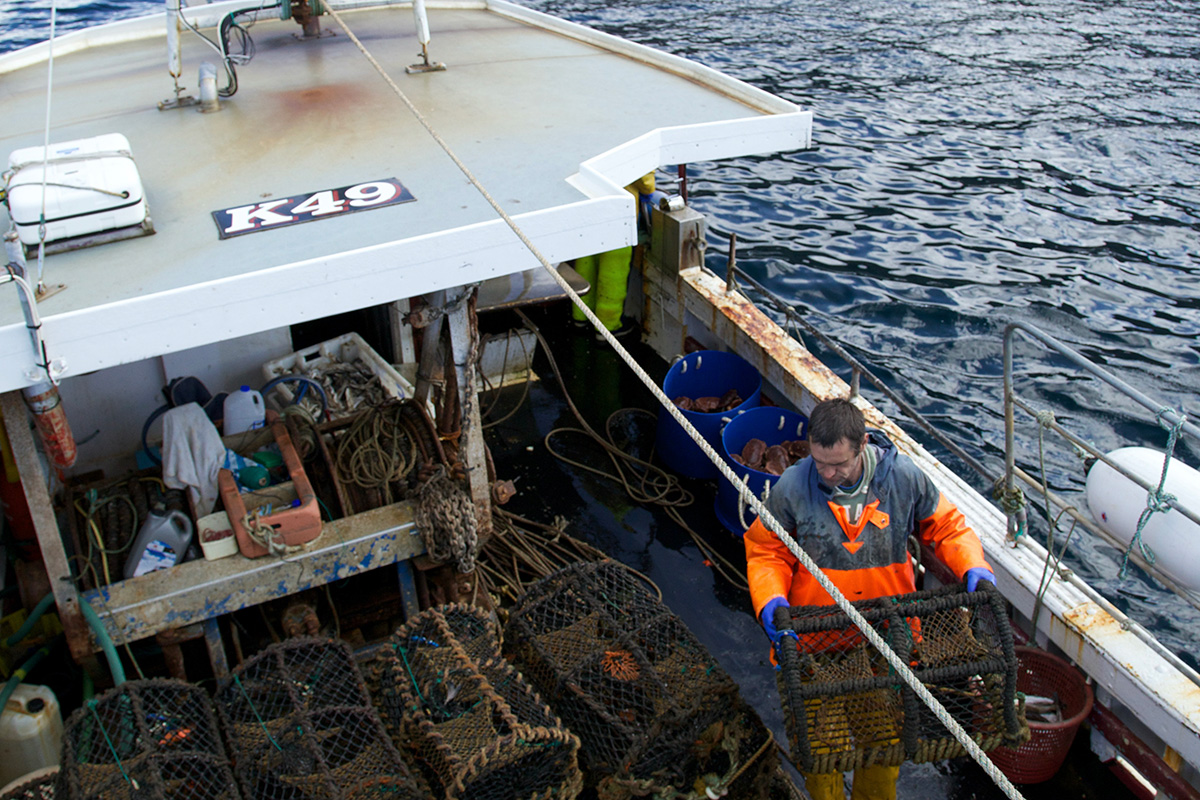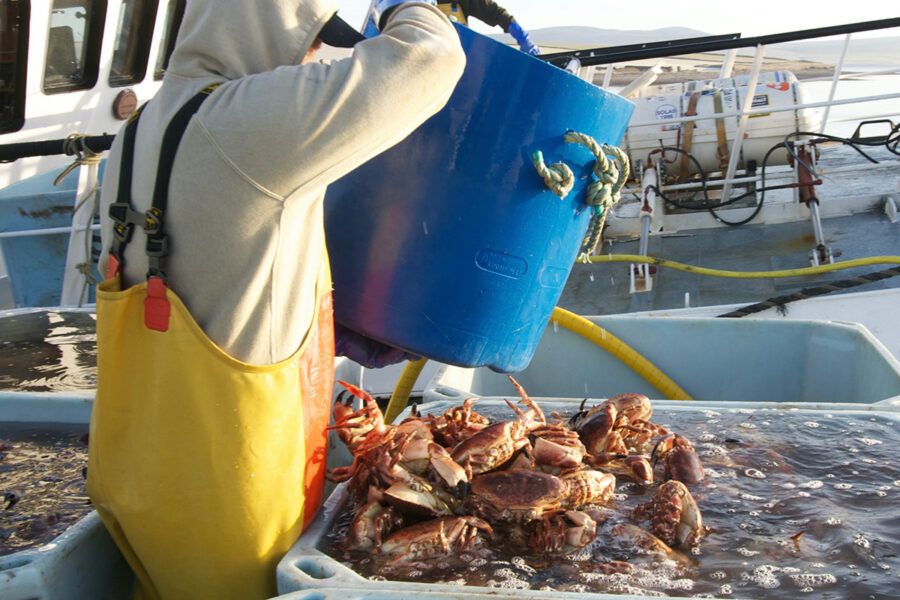Community Catch is a new initiative designed to help small-scale fishermen – defined as those working on vessels under 2.4m – around the world to reach new markets. A not-for-profit body, it is supported by Marks and Spencer amongst others.
The group has released a detailed draft assessment tool that will be used to assess and certify fisheries to international standards on issues such as crew conditions, disposal of end- of-life gear, bycatch and catch welfare issues, in a way that is both transparent and affordable for small-scale fisheries, where the costs of existing certification can be prohibitive.
For many small-scale fisheries, ticking the corporate social responsibility boxes required by large supermarket chains or major processors can also be difficult – or impossible – preventing them from accessing these lucrative markets. Whilst small-scale fisheries worldwide employ 90% of the world’s fishermen, just 15% are currently certified to the standards required by the largest retailers.
The project has been progressing behind the scenes for a number of years, with Orkney fishermen playing a key role in the development of the standard to date. One of 18 fisheries around the world to complete the first pilot trials in 2023, the Orkney crab fishery became one of only five to move through to phase two of the project, alongside a second Scottish fishery, for Nephrops, as well as one each in Indonesia, South Africa and Mexico.
Input to the consultation will be used to inform a revised draft, which will itself be opened for a further 30-day consultation period. It is expected that the scheme will officially launch on the market later this year.
Based on the Food and Agriculture Organisation (FAO) Code of Conduct for Responsible Fisheries and the FAO Voluntary Guidelines for Securing Sustainable Small-Scale Fisheries, the new Community Catch standard also aligns with the Global Sustainable Seafood Initiative Global Benchmarking Tool for seafood certification schemes – something required by many large corporate buyers. It also incorporates relevant aspects of the International Labour Organisation Work in Fishing Convention.
As with the Fisheries Improvement Projects that recognise steps that have been made towards full MSC certification, the new Community Catch system will also provide recognition of fisheries that are demonstrably moving towards the standard.
The entire process is designed to be cheap, accessible and achievable for small fishing associations and Community Interest Companies, levelling the playing field with big fishing companies that can afford expensive certification under bodies such as the MSC.

A further benefit is that the standard can allow for multiple assessment of different species managed by local fishing associations or communities, lowering the costs and workloads considerably. In Orkney, this includes the inshore lobster and velvet fisheries.
Katie Cubbon of Orkney Crab, who is co-ordinating the beta trial, told Fishing News: “Orkney Crab has been involved in both the early trials in 2023, and then in the full self-assessment, which we completed in June and has been submitted to a conformity assessment body for review to establish where each fishery sits in relation to the Community Catch standard – which we hope will result in eventual certification.
“One advantage of this new approach is that we are able to assess all three Orkney creel fisheries – for brown crab, lobster and velvets – at the same time. This is a simpler and cheaper approach than, for example, MSC accreditation.
“A key to this, we have found, is early involvement of fishermen, as well as managers, so we’ve been in discussion
with the Orkney Regional Inshore Fisheries Group, and with the Orkney Fisheries Association, as we have moved through to the full assessment. Fishermen’s involvement during the self-assessment process is fundamental in the development of the standard – both crew and vessel owners.
“The process is designed to allow self-assessment, keeping down costs. It does need the early, and regular, involvement of the fishermen themselves, but if you have sufficient information on your fishery then the process isn’t that daunting at all.
“The hopeful outcome is certification that will both strengthen our position in UK retail markets, and potentially open up new markets elsewhere. We’re looking forward to the results next month – and would very much like to thank The Fishmongers’ Company for their financial support in allowing us to go ahead with this.”
Dr Andrew Hough, a director of Community Catch, said: “Our catch certification initiative is based on a charitable structure, and takes a fresh approach to market access in an increasingly important crowded arena. We are undertaking intensive testing of our approach with fisheries in Scotland, South Africa, Mexico and Indonesia, which will enable us to fine-tune details. Trial clients are also testing our ‘worker voice’ questionnaire.
“We are very proud of what we have developed, and believe that for small-scale fisheries, it offers a cost-effective alternative to other global certification schemes. In particular, the new certification scheme will enable fishing communities to connect to markets that were previously inaccessible because they lacked the necessary data and credentials.”
Linda Wood, aquaculture and fisheries manager at Marks and Spencer, said: “At M&S we take responsible sourcing of seafood seriously. We are also incredibly supportive of small- scale fisheries around the world, and want to help and encourage them to access new markets and demonstrate their credentials.
“We feel that Community Catch will provide much-needed support and recognition for these fisheries, not only around environmental issues, but also on social and animal welfare matters. The initiative will also enable us to source with confidence from fisheries that were previously inaccessible to us.”
The draft standard, and an explanation of what it hopes to achieve, are available on the group’s website at: communitycatch.org It is open for comment until 29 August.
This story was taken from the latest issue of Fishing News. For more up-to-date and in-depth reports on the UK and Irish commercial fishing sector, subscribe to Fishing News here or buy the latest single issue for just £3.30 here.
Sign up to Fishing News’ FREE e-newsletter here.
Images: Colin Keldie








